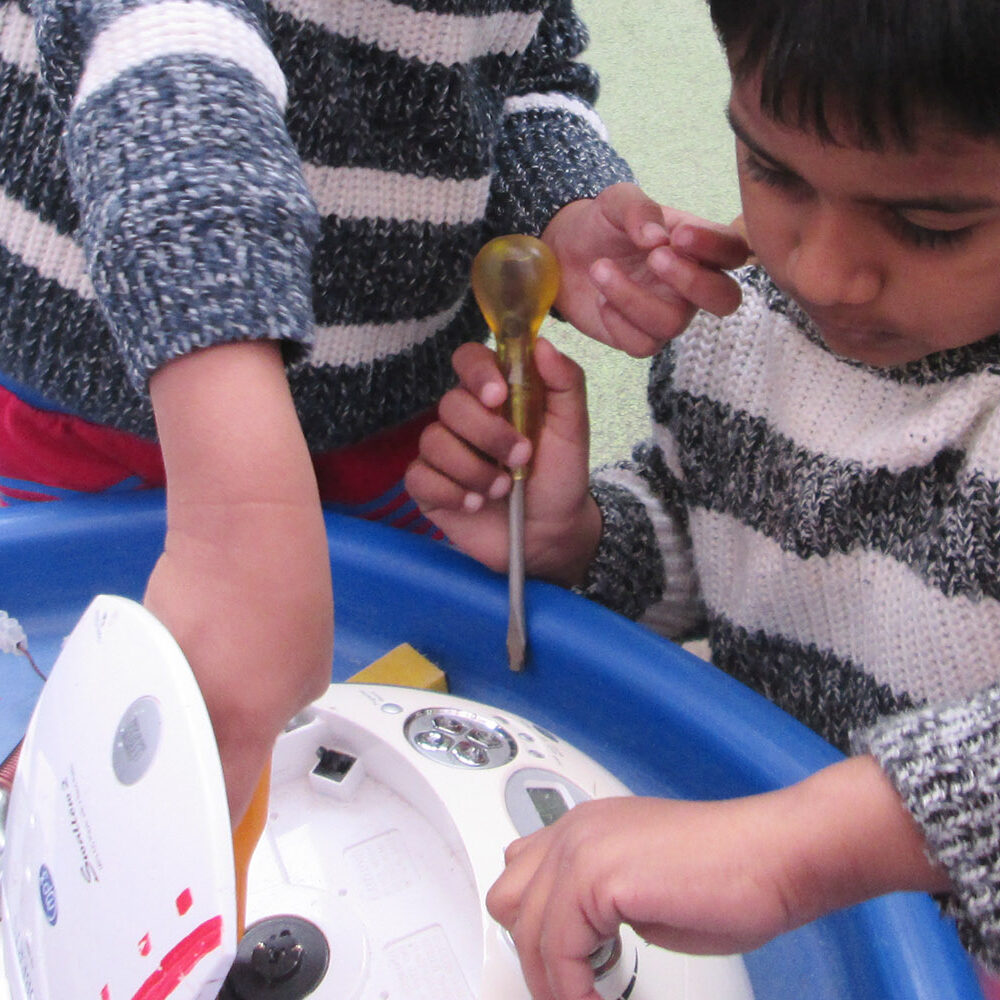INCLUSION
Our School is Inclusive
Our school is an inclusive school. We actively seek to remove the barriers to learning and participation that can hinder or exclude individual children, or groups of children. This means that equality of opportunity is a reality for our children. We do this through the attention we pay to the different groups of children within our school:
- girls and boys
- minority ethnic and faith groups
- children who need support to learn English as an additional language
- children with special educational needs
- gifted and talented children
- asylum seekers
The Early Years Foundation Stage framework is our starting point for planning to meet the specific needs of individuals and groups of children. We meet these needs through:
- providing suitable learning opportunities
- responding to children’s diverse learning needs
- overcoming potential barriers to learning and assessment for individuals and groups of children
- providing other opportunities to meet the needs of individuals or groups of children, for example speech and language therapy
We achieve educational inclusion by continually reviewing what we do, through asking ourselves these key questions:
- Do all our children achieve their best?
- Are there differences in the achievement of different groups of children?
- What are we doing for those children who we know are not achieving their best?
- Are our actions effective?
- Are we successful in promoting racial harmony and preparing children to live in a diverse society?
Teaching and learning style
We give all our children the opportunity to succeed and reach the highest level of personal achievement. We analyse the attainment of different groups of children to ensure that all children are achieving as much as they can. We also make ongoing assessments of each child’s progress. We use this information when planning learning experiences for the children. It enables us to take into account the abilities of all the children.
When the attainment of a child falls significantly below the expected level, keyworkers enable the child to succeed by planning work that is in line with that child’s individual needs. Where the attainment of a child significantly exceeds the expected level of attainment, keyworkers extend the breadth of learning within the area or areas for which the child shows particular aptitude.
Staff are familiar with the relevant equal opportunities legislation covering race, gender and disability.
Keyworkers ensure children:
- feel secure and know that their contributions are valued
- appreciate and value the differences they see in others
- take responsibility for their own actions
- are taught in groupings that allow them all to experience success
- use materials that reflect a range of social and cultural backgrounds, without stereotyping
- have a common curriculum experience that allows for a range of different learning styles
- have challenging targets that enable them to succeed
- are encouraged to participate fully, regardless of (dis)abilities or medical needs
Children with disabilities
It is possible that some children in our school will have disabilities and consequently need additional resources. The school is committed to providing an environment that allows these children full access to all areas of learning. All our classroom entrances are wide enough for wheelchair access, and the designated points of entry for our school also allow wheelchair access.
Keyworkers will modify teaching and learning as appropriate for these children. For example, they may give additional time to children with disabilities to engage fully in experiences. In their planning staff will ensure that children with disabilities have the opportunity to develop skills in practical aspects of the curriculum with additional support or resources as required.
Keyworkers will ensure that the play and learning for these children:
- takes account of their pace of learning and any equipment they may use
- takes account of the effort and concentration needed in oral work, or when using, for example, vision aids
- is adapted or offers alternative experiences in those areas where children are unable to manipulate tools or equipment, or use certain types of materials
- allows opportunities for them to take part in educational visits and other experiences
- includes approaches that allow hearing-impaired children to learn about sound in science and music, and visually-impaired children to learn about light in science, and to use visual resources and images across all curriculum areas
- uses assessment techniques that reflect their individual needs and abilities
Racism and inclusion
The School has implemented the recommendations of The Stephen Lawrence Inquiry: MacPherson Report (1999). Keyworkers are flexible in their planning and offer appropriate challenges to all children, regardless of ethnic or social background. All racist incidents will be recorded and reported to the governing body by the Headteacher. The school will contact parents of those children involved in racist incidents.
Summary
In our School & Children Centre the teaching and learning, achievements, attitudes and well-being of every child are important. We follow the necessary regulations to ensure that we take the experiences and needs of all our children into account when planning for learning.
To contact the SENCO please email admin@tunstall.croydon.sch.uk or go to Contact Us.
Please click here to see our Accessibility Plan
Please click here to see our SEND Policy
Please click here to see our SEND report
Please click here to see Croydon's Local Offer
Please click here to contact Croydon's local offer team
Please click here to see Croydon's Special Educational Needs and Disabilities Information Advice and Support Service (SENDIAS)
Please click here for contact details for Croydon's SEND support team

